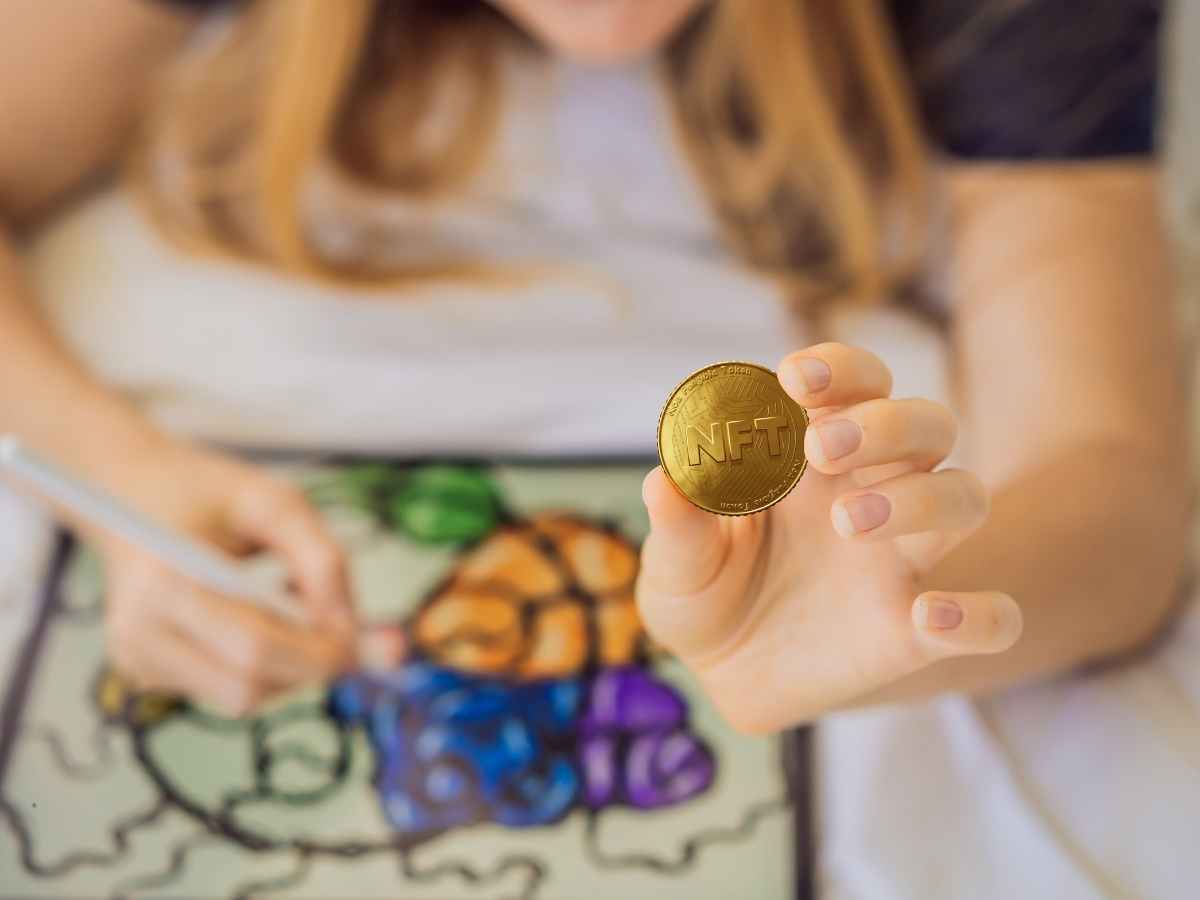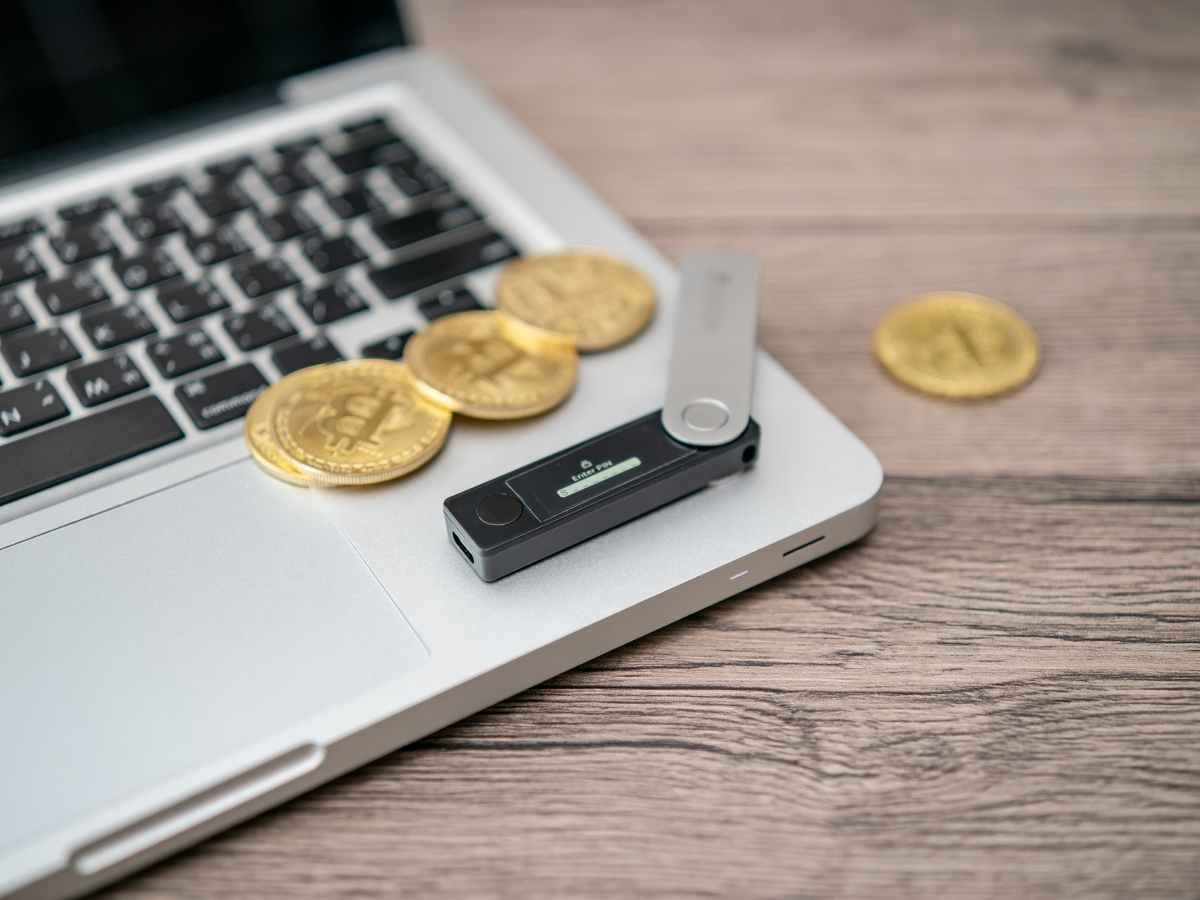NFTs – fundamentals, applications, security
Non-Fungible Tokens (NFTs) are no longer hype, but are becoming a serious trend with increasing acceptance and popularity. It almost seems like there are no limits to the possible use cases and values that can find their way into the digital universe, making them a lucrative investment in many cases. In any case, more and more companies and global players are joining the trend and offering NFTs or digitizing a suitable asset and selling it to bidders and customers in exchange for NFTs. Famous digital artworks are well known and have changed hands for incredible sums. The crypto world knows no boundaries at the moment and so the news is full of new projects and NFT use cases every day.
Offering digital assets via NFT
Crypto collectibles and NFT art are far from everything, but just two of the most prominent use cases in the DeFi ecosystem. The non-fungible or non-exchangeable tokens are a good complement to real assets and can also represent patents, licenses, tickets, and memberships. It is still easy for consumers to copy, use, and duplicate digital art despite copyrights and licenses.
NFT art
The first sensational auctions involved digital artwork. Of course, success wasn’t always as incredible as it was for American digital artist Mike Winkelmann, whose painting “Everydays: The First 5000 Days” fetched $69 million. The collage is now linked to the name of the new owner via NFTs and stored in the blockchain. Meanwhile, serious auction houses have also taken notice and are betting on the opportunities for digital art in the art market.

NFT Patents
Tokenization offers greater transparency and the associated transactions are easy and, most importantly, inexpensive to conduct. IP-based NFTs are one way to deal with intellectual property. The IPwe platform enables the representation of patents by storing and sharing the NFTs on this platform. The platform is hosted by IBM Cloud and supported by IBM Blockchain.
Clients can also trade, buy, license, finance, sell, research and market patents there. The patent marketplace is the first of its kind and companies benefit from treating and showcasing their patents as digital assets to hedge or secure the value of their business. The freely accessible registry is supported by IBM AI and will be further expanded in the coming months.
NFT Collectibles
Conservative auction houses are increasingly venturing into NFT auctions, such as recent auction house Heritage Auctions, which sold computer scientist Scott Fahlman’s first 1982 smiley face to the highest bidder for the equivalent of 200,000 euros (with a starting bid of $1,000).
NFT Games
NFTs are influencing the entire gaming market and bringing about an entirely new form of gaming. From the free-to-play and play-to-play models, the play-to-earn (P2E) game model has evolved, in which players receive rewards for their achievements. These are in the form of NFTs and can be monetized accordingly. The tokens or NFT game items can also be traded in-game.
NFT real estate
The data stored on the blockchain in the form of a token can also be used for digital mapping of real estate. With smart contracts, everything is contractual and digitally signed. The transaction in the blockchain serves as security and also allows private small investors to access real estate. In other words, the real estate can be both physical and digital.
NFT videos
TikTok is introducing NFTs on its platform: TikTok Top Moments are to run as a 2-tier protocol on the Ethereum Blockchain. A total of six of these Top Moments videos will be made available as NFTs. The collection starts with Lil Nas X and Rudy Willingham. Other participating artists include: Bella Poarch, Curtis Roach, Brittany Broski, FNMeka, Jess Marciante and Gary Vaynerchuk. Users can trade TikTok Top Moments on secondary marketplaces if they successfully participate in the auction.
NFT use cases – the legal aspects.
Digital assets, physical assets or property rights: NFTs are extremely flexible and versatile. Their utility leads to new business models and the assets behind them usually make the token issuers a lot of money. However, they often also involve property rights, for example to music or works of art, which cannot simply be transferred in legal terms.
The legitimate question arises whether NFTs are not even financial instruments within the meaning of the German Banking Act. It is certain that NFTs are not shares or bonds and therefore may not be treated as such. But copyright and data ownership are so far only regulated in existing laws and these do not provide for mapping by NFTs.
How can you protect your NFTs?
As NFTs continue to grow in importance and value, this has unfortunately attracted the attention of bad guys who want to get their hands on your NFTs by any means necessary. Fortunately, digital assets are incredibly secure at the blockchain level. Thus, it is highly unlikely that anyone will lose their assets due to a hack or attack at the blockchain level.
Instead, the vast majority of NFT thefts and losses are due to asset holders falling victim to one of the many scams or failing to adequately secure their assets.
Hardware Wallet
If you currently have your NFTs on a centralized platform, be careful. These can be – and sometimes are – hacked. Instead, consider purchasing one of the many hardware wallets that are now available. These are (usually) small physical devices designed to isolate your cryptocurrencies and other digital assets from the internet and other potentially dangerous situations. There is now a huge selection of hardware wallets on the market in various price ranges. However, make sure that the wallet you choose supports the blockchain(s) you want to store your NFTs on and that it also supports the specific NFT token standards.
Hardware Wallet
If you currently have your NFTs on a centralized platform, be careful. These can be – and sometimes are – hacked. Instead, consider purchasing one of the many hardware wallets that are now available. These are (usually) small physical devices designed to isolate your cryptocurrencies and other digital assets from the internet and other potentially dangerous situations. There is now a huge selection of hardware wallets on the market in various price ranges. However, make sure that the wallet you choose supports the blockchain(s) you want to store your NFTs on and that it also supports the specific NFT token standards.

Marketplace
What the recent OpenSea bug has taught us: You don’t have to be robbed to lose your NFTs – you might instead accidentally sell them at far too low a price. For the most part, NFT marketplaces are platforms without custody rights, meaning you always have control over your assets, even if they are listed on the marketplace or simply showcased in your portfolio. However, they do require users to authorize their smart contracts to interact with their assets, for example, to transfer them to the right buyer when they sell. If the contracts exhibit errors, this can leave your NFTs vulnerable.
Make sure the marketplace you use is both highly secure and reputable. One of the easiest ways to verify this is to look at the public audits, which essentially verify that the smart contracts do not contain any bugs or vulnerabilities and are overall safe for the public.
Virus protection
Computer viruses allow an attacker to exfiltrate data from your computer in a variety of ways, or possibly even take over your system remotely. Protecting yourself from viruses is usually a simple task: First, avoid places that may try to install virus-laden code on your computer – copycat websites, websites that offer dubious/illegal content, torrents and other P2P file sharing services, and chat rooms.
Most viruses require you to open a file manually before it can be installed. Therefore, do not install a program or open an attachment you received from a suspicious source under any circumstances.
Avoid scammers
Unfortunately, the cryptocurrency industry is teeming with scammers who want to rob you of your NFTs and other digital assets. Always be cautious and trust your common sense – scammers usually pick inexperienced and gullible people as their victims. If you follow these important behaviors, you can avoid most of the risks to your NFTS. At Everlast Fund, we work with realistic, serious returns that you can always count on. Read more about how we work here.

